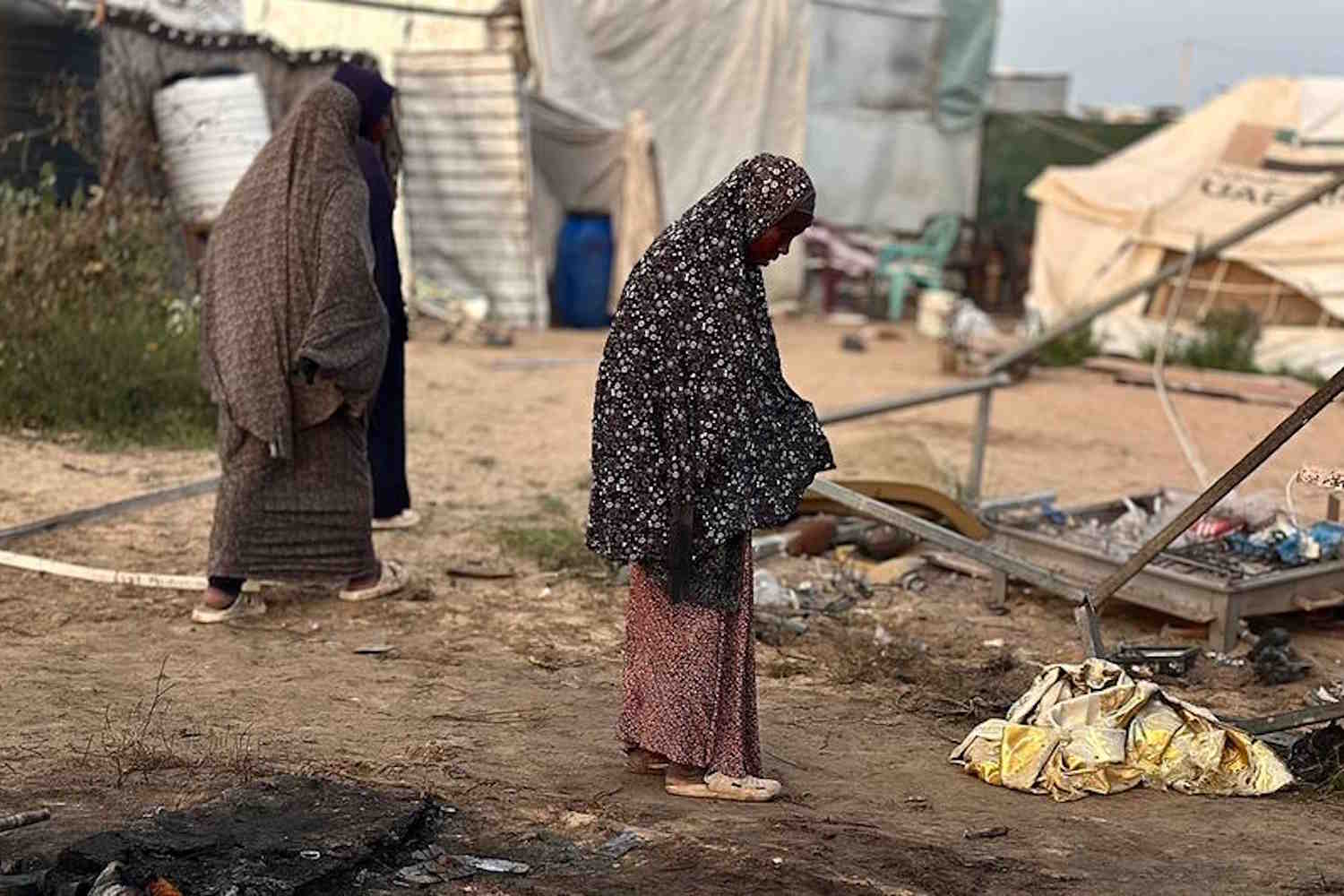In Gaza, the lack of menstrual hygiene products forces women into dangerous, humiliating choices—turning a natural cycle into a form of war.

© UNFPA/Media Clinic
In Gaza, menstruation has become a survival taboo. Women can no longer afford the so-called luxury of suffering in silence—they simply don’t have what they need to manage their menstrual cycles.
Journalist Rula Jebreal has sounded the alarm, relaying the desperate words and requests of students and friends trapped in the Strip.
They have no pads. No water. No answers. And, in some cases, they ask if there is a permanent way out—sterilization.
This is not just a humanitarian crisis. It is systemic violence against the female body.
The body as a battlefield
Every month, menstruation comes on time. But in Gaza, womanhood itself has become an unbearable weight. There is no access to basic hygiene products.
To wash? The only option is the sea—salt water instead of fresh. Israel restricts access to vital resources, and feminine hygiene has become yet another collateral casualty.
While the world debates geopolitics, girls in Gaza must choose between bleeding in silence or risking infection, humiliation, and pain. It is a condition that breaks both body and spirit.
According to the World Health Organization, over 40% of pregnant or breastfeeding women in the Strip suffer from acute malnutrition. But hunger is accompanied by another, less visible famine—that of hygiene and dignity.
The menstrual cycle, natural and inevitable, has become a monthly prison. The requests that reach Jebreal are harrowing: “How can I sterilize myself?” women ask. Not out of choice, but from necessity. From despair.
Washing in the sea, surviving in the mud
In Gaza, the sand is not a beach but a refuge. The sea is not leisure—it is soap. Women wash there, in public, with no shelter, no safety. It is a daily scene that should shake the conscience, yet too often it is met with silence.
Meanwhile, distribution of essential goods is obstructed, aid is slowed, and products for women’s health—pads, disinfectants, clean underwear—simply do not arrive.
Rula Jebreal speaks openly of genocide. And within that hard word lies the slow erasure of the possibility of being a woman, a mother, a young person, alive. The female body is not merely neglected—it is punished.
Even finding food has become an act of courage. More than 1,000 people have been killed while trying to reach aid convoys. “Food has been turned into bait to kill,” says Jebreal. And while families risk their lives for a meal, women risk infection just to live through their own biology.
This is a war fought not only on the front lines, but in the silence of bathrooms that do not exist, in blood that cannot be washed away, in shame that should never exist.
Menstrual care is not a luxury. It is a human right. Denying it is a cruel, systematic, and invisible form of violence. The world must answer. Now.
Source: La7 – Television
